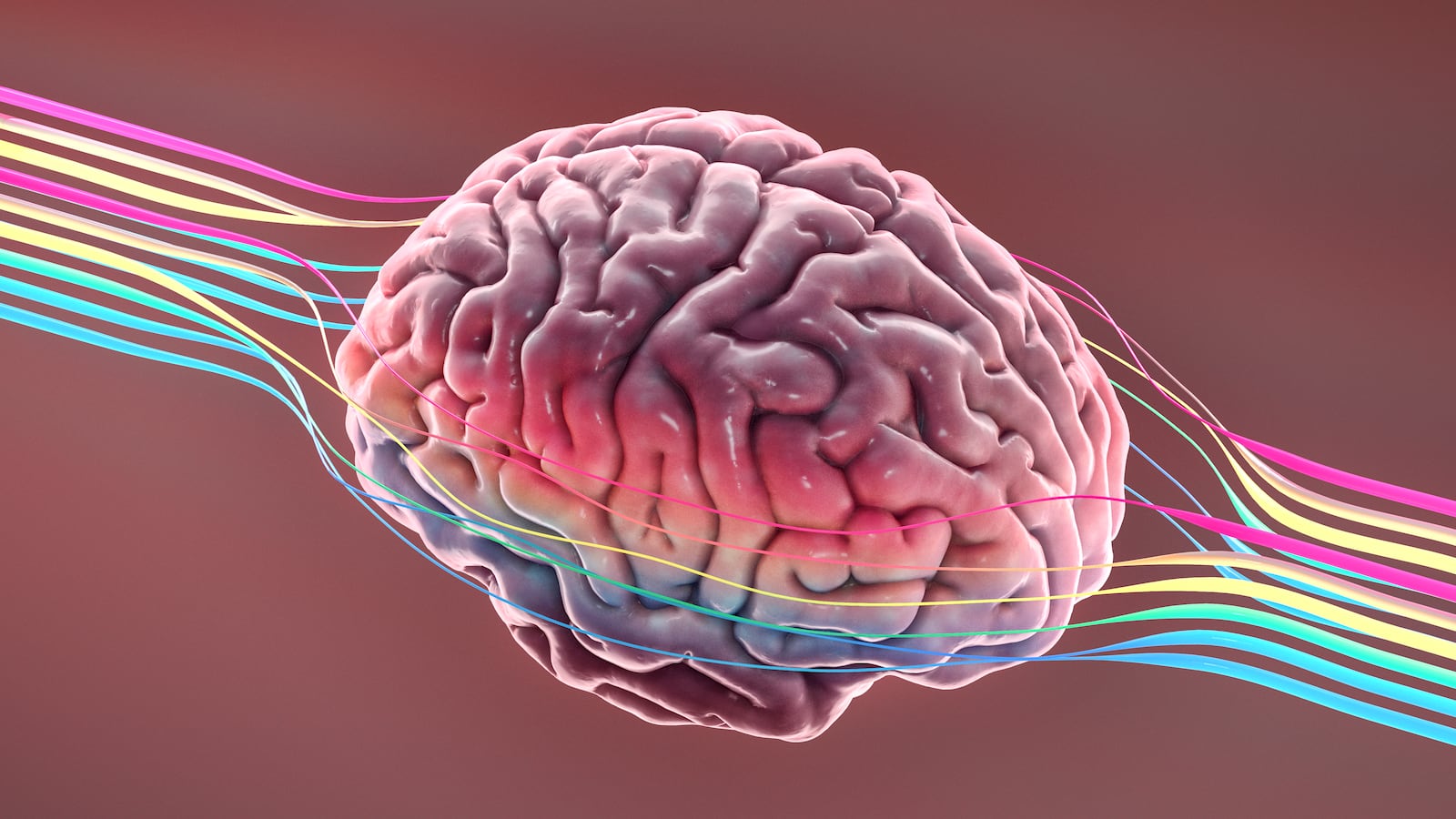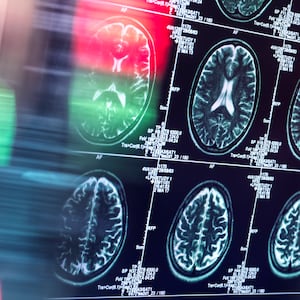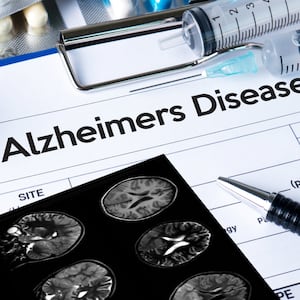There are nearly 6 million adults in the U.S. with Alzheimer’s disease. The disorder typically strikes before age 60 and it has no cure, although there are drugs that can alleviate memory symptoms and other cognitive changes.
However, scientists may be on the cusp of a treatment that can stop Alzheimer’s disease in its tracks. In a study published Wednesday in the journal Science Translational Medicine, a group of researchers led by neuroscientists at Yale University uncovered an experimental drug taken orally that appears to reverse brain damage in mice afflicted by Alzheimer’s, and could protect the brain from future damage for at least one month. If its success and remarkable safety can be replicated in future clinical trials in humans, the new drug, called BMS-984923, may save countless Alzheimer’s patients. It could even prevent the disease outright for those who are at risk.
To fix Alzheimer’s disease, it’s first important to understand what causes it. A decade or two before someone with the disorder shows any overt symptoms, abnormal levels of a naturally occurring protein form structures called amyloid plaques. These sticky deposits collect between neurons and disrupt normal brain function, Dr. Stephen Strittmatter, a neurologist at Yale University and co-author of the new study, told The Daily Beast.
Around the same time there’s build-up of another protein tau, which collects inside neurons and damages them. This is followed by inflammation, which prevents the brain from being able to clear up the toxic amyloid plaques and tau proteins on its own.
“So you have three bad things going on. But what really matters for people’s symptoms, is the neural network—the synapses that connect one neuron to another that are really required for the brain to carry out its job,” said Strittmatter.
Many efforts into devising effective Alzheimer’s treatments have focused on targeting the amyloid plaques. But Strittmatter believes considering a therapy that protects the brain’s precious synapses—which convey information between neurons—may be more crucial. Enter BMS-984923, a drug that seems to shut down the mechanism that allows tau proteins to accrue inside neurons and raise the alarm for inflammation.
BMS-984923 isn’t a new drug—it’s been known in the Alzheimer’s research community—but it hasn’t really been tested before to treat the disease. In mice genetically engineered to develop Alzheimer’s, Strittmatter and his colleagues found that BMS-984923 targeted tau protein accretion without affecting other receptors, and also prevented inflammation. This gave any damaged synapses time to heal and the benefits lasted up to a month after treatment was discontinued.
These early results are promising but it may take some years before we could see the drug being prescribed for Alzheimer’s patients. While BMS-984923 seemed to be safe for large rodents and monkeys, a safety trial in humans is underway and nearly complete, Strittmatter said. The drug might not also be helpful for patients in the later stages of Alzheimer’s—the lab mice the researchers used resembled more people with early to mild symptoms, so it’s hard to say without further research. For healthy people who may be at risk for Alzheimer’s, Strittmatter said BMS-984923 could someday be taken as a preventative but the jury is still out.
“I think synergy and combination [therapies] may be the eventual end result,” said Strittmatter. “We need to have some small successes before we start combining them. I think in the longer term, if we can make progress on a couple of fronts and put them together, we might make much more substantial progress for Alzheimer’s disease.”








